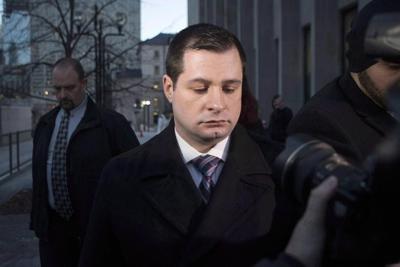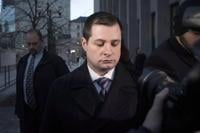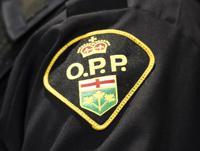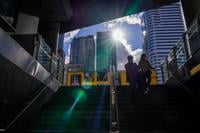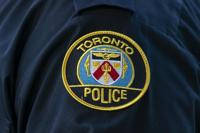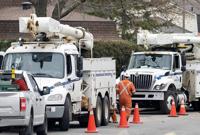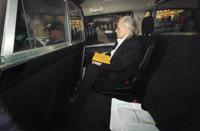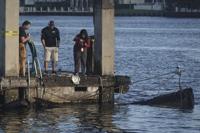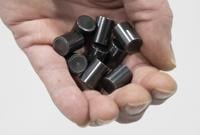TORONTO - A former Toronto police officer who shot a teen on an empty streetcar more than a decade ago told a coroner's inquest Tuesday it would have been helpful to receive feedback from superiors on his use of force before that fatal incident.
James Forcillo told the inquest into the death of 18-year-old Sammy Yatim that whenever an officer uses force – which includes drawing a firearm – they have to fill out and submit a form, but they typically "never hear about it again."
"It would be good if they were reviewed with the officer sometimes," to highlight things that were done well, as well as any mistakes or areas of improvement, he said.
The inquest has previously heard Forcillo had five instances were he drew a firearm between April and December 2012, and one in 2013 about two weeks before Yatim's death. Forcillo said he was not given any feedback on any of those incidents.
Forcillo, who was a constable at the time, also said no one approached him to check on his well-being after any of those incidents.
At the time, it was "not the culture" to discuss mental health, he said.
"Police officer mental health is not something that is ever really brought up because if you express that you're not doing well, they're going to take you off the road," he said. "You bottle it and you push it down and everything's fine."
Nor did anyone speak to him about his "workaholic" habits, which would sometimes see him spend several days at the station without going home, he said.
"Toronto police, at that time, encouraged you – they wanted to get everything they could out of you," he said. "It was encouraged to work as much as you can."
Yatim was alone on a streetcar and holding a small knife when he was hit by two volleys of shots shortly after midnight on July 27, 2013.
Forcillo was found not guilty of second-degree murder in connection with the first volley of bullets, which court heard was fatal, but was convicted of attempted murder for the second volley, fired when Yatim was already on the ground.
Forcillo did not discuss the events of that night in detail, as that falls outside the scope of the inquest. He said he stands by the statements he made at his parole hearing.
Inquest jurors heard Forcillo told the parole board he rushed his decision-making that night and went against his training, that he should have used communication to de-escalate the situation and should have waited for a higher ranking officer who was able to use alternative methods.
On Tuesday, the presiding coroner said Forcillo's statements to the parole board "make this inquest unique in many ways."
In many similar inquests, the evidence largely focuses on whether the officer followed their training and made the right decisions, as well as what use-of-force training they received, Dr. David Cameron said. That evidence can take up to two weeks to hear, he noted.
"Here in this inquest, we have the unique opportunity to explore what to do when a police officer doesn't follow their training ... We can start off trying to address the problem of police officers not following their training in high-stress confrontations," he said.
"It will be decades before an inquest has this opportunity again."
Coroner's counsel has said the inquest is meant to examine police decision-making and best practices in dealing with people in crisis.
This report by Ďă¸ŰÁůşĎ˛ĘąŇĹĆ×ĘÁĎ was first published Jan. 23, 2024.

